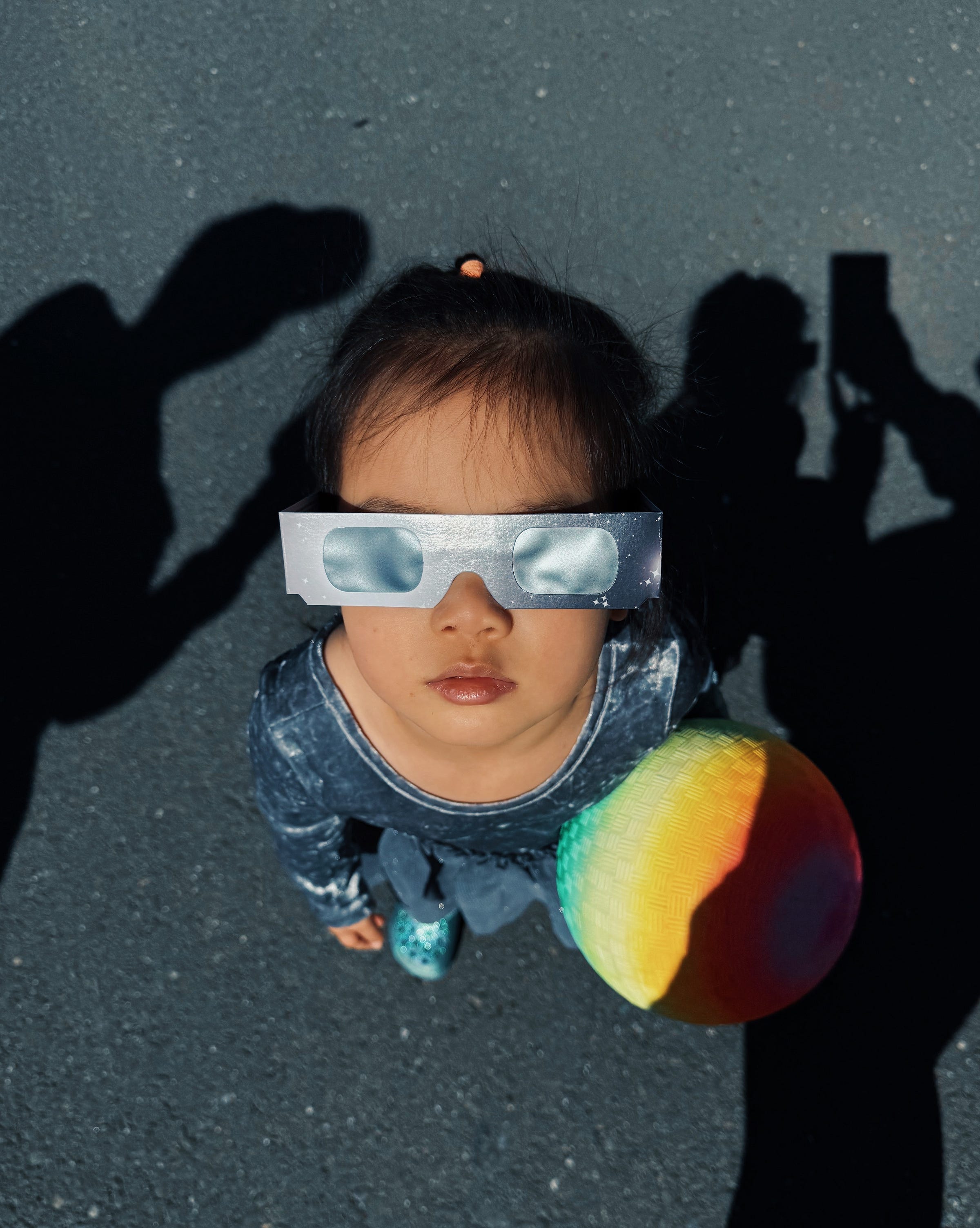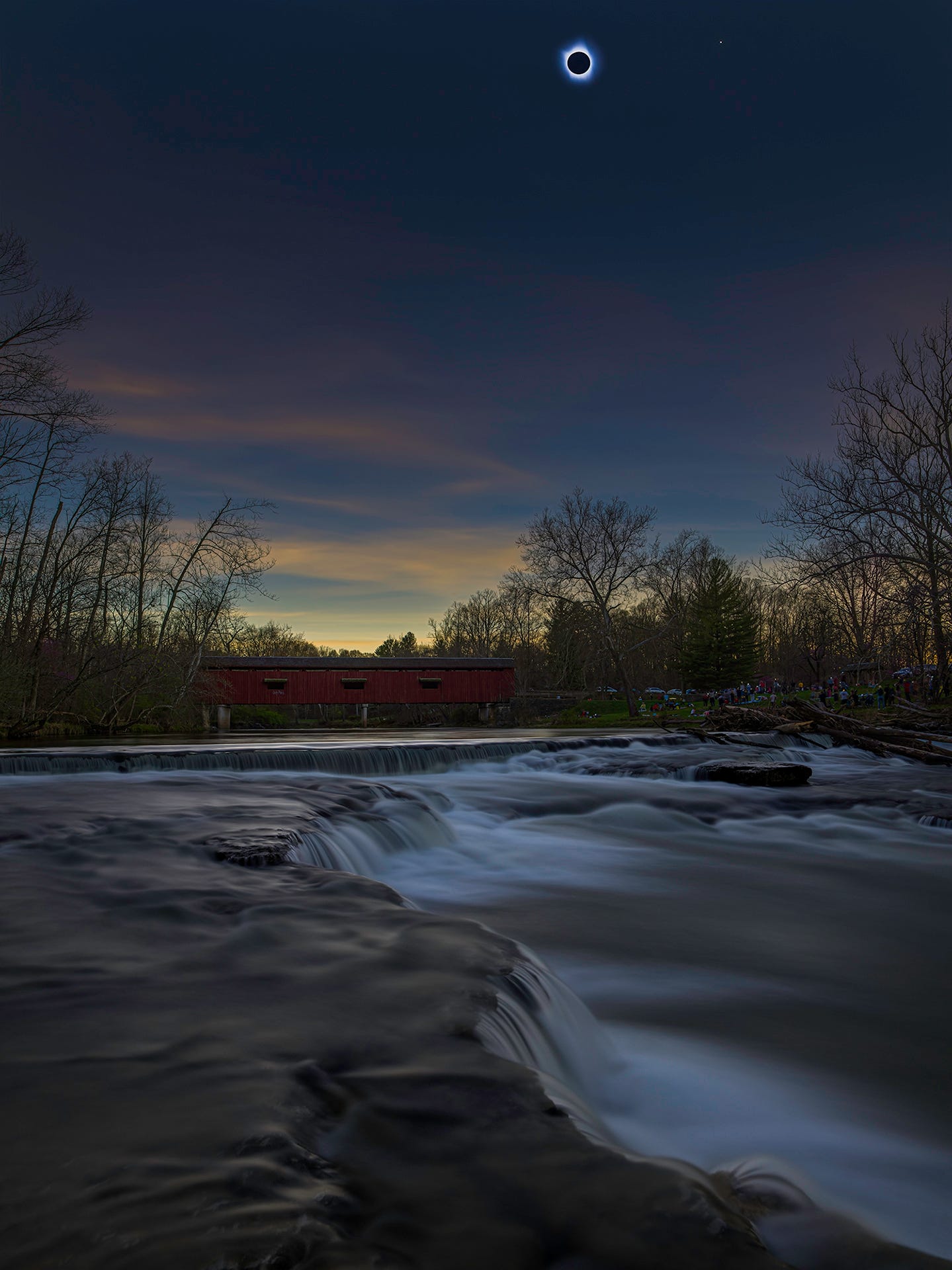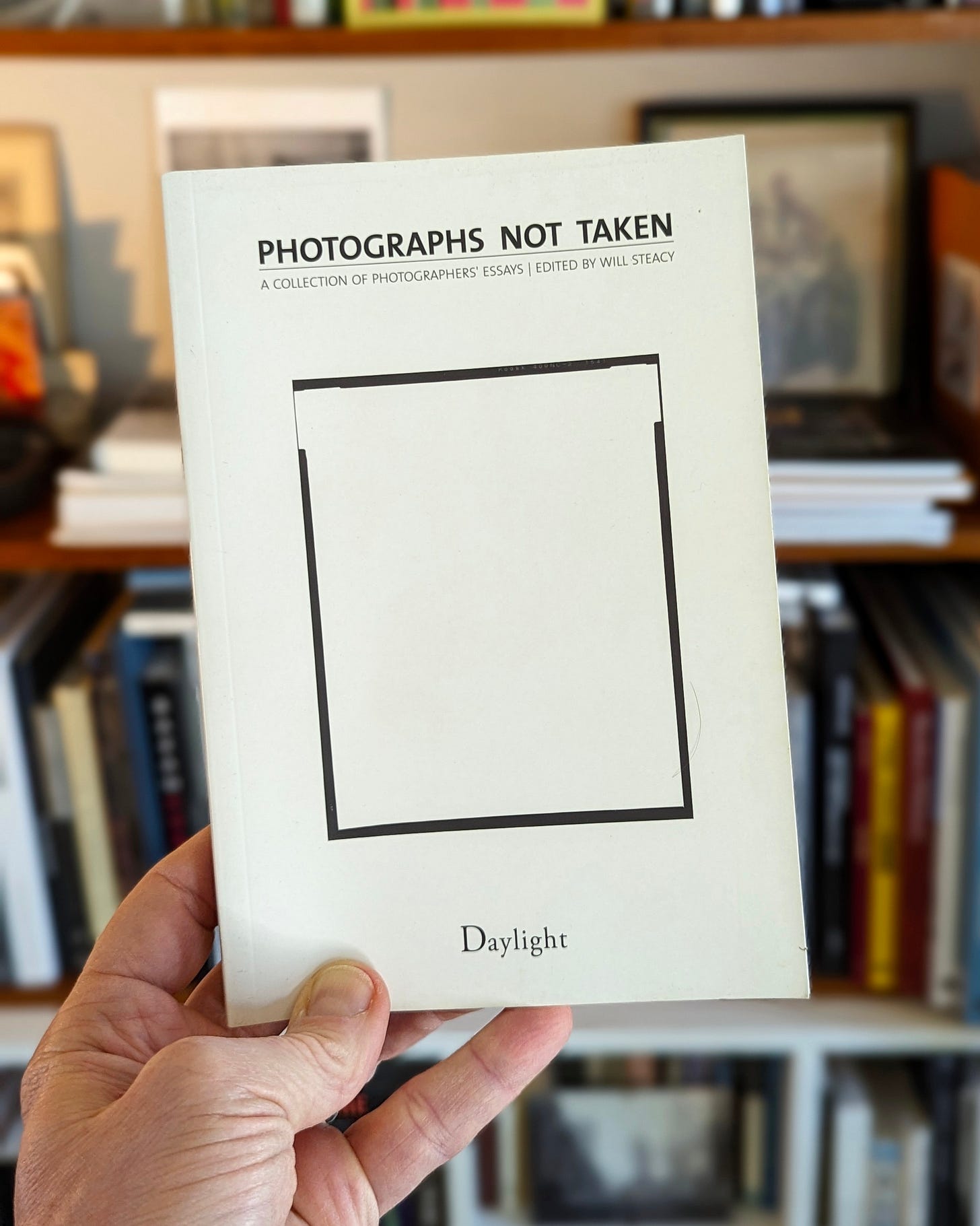Readers Respond: Eclipse Pictures
Is it better to resist the urge to photograph?
What I love most about writing this newsletter is reading your feedback. Hearing your thoughts always makes my day and frequently opens my mind. I had so much fun curating last week’s Picturing the Solar Eclipse post. I used to do this kind of thing more regularly, and getting back into the groove felt really good. Please check it out if you haven’t yet. There’s a lot to look at. You can see it here:
Many of you wrote me in response, and a prevailing theme was the numerous people — some of them photographers — who didn’t take any pictures of the eclipse. They experienced it without trying to document it. I love that. One of my readers, a photographer, elaborated on his reasons for being present without his camera:
Sometimes, I don’t want a photograph; the memory is more important, and it’s odd how photographs change (or reshape?) our memories. Maybe I believe the event went a certain way. Still, the picture tells me something different, and I then become ‘wrong’ about my experience. This is linked to why people have a hard time remembering and corroborating a traffic accident or other traumatic events. The experience is recorded in a way that makes sense to the brain — which isn’t photographic.
In 2017, I was on the path of totality and experienced ‘darkness’ for over a minute. Stuck in the August heat and humidity that can only be found in central Missouri, the temperature dropped 20 degrees — it was easily unforgettable. It also became silent; the birds stopped making noise, and the bugs ceased to move. Suppose I was trying to make a photograph. I would have missed the event (psychologically speaking) and possibly forgotten how the eclipse affected my senses.
He’s right: Photography can be a significant distraction. I struggle with this all the time on my walks. I should be moving, breathing, seeing, and being, and I end up disrupting that flow by constantly grabbing my camera from my hip pack to make a picture of something I saw along the way. I can’t help myself.
Maybe that’s the photographer’s curse? I know some of you can relate.
Another reader emailed:
I share your love of photography. Not so much anymore, with "everyone" having a camera in hand. They'd rather film something than help, but I've also noticed over time, not holding one, that people seem to have radiated away their sense of depth perception and periphery.
To look through a lens pushes things away, smaller, and deletes periphery.
I saw a news clip of dressed-up people watching the Kentucky Derby from the fence — with the horses right in front of them — and filming it. Tiny, far away, and what are the chances they'll ever look at that again?
Experience is one thing; being an Archivist is another.
It's all a mystery to me, and I like it that way. Awe and wonder are so much better than fear or fear of not having evidence of what you actually missed!
I take her point. Photography is pleasurable even when we don’t revisit the pictures. There’s meaning in the making. But do we lose something in the process?
These emails reminded me of a book I haven’t read in years, The Photographs Not Taken, published by Daylight Books in 2012. Here’s how editor Will Steacy describes the project in its preface:
The Photographs Not Taken is a collection of essays by photographers about the times they didn’t use their camera. I have asked the photographers to abandon the conventional tools needed to make a photograph and, instead, make one using words to describe the memories and experiences that didn’t go through the camera lens. Here, the process of making a photograph has been reversed. Instead of looking out into the world through a camera lens, these essays allow us to look directly into the photographer’s mind and eye and focus on where the photographs come from in their barest and most primitive form. These mental negatives depict the unedited world and the moments of life that do not exist in a single frame.
Will’s book is a time capsule and a real photoland who’s who from years ago. I thought this was out of print, but it looks like you can get a copy from Daylight. A few years ago, The New Yorker published Nina Berman’s essay. Check it out!
Do you struggle with being present, or do you have a balanced relationship with your photo habit? It’s worth considering how technology interferes with our experiential connections with the real world. Let me know what you think. You can email me directly or leave a comment below.
I want to give special thanks to Pamela Chen and Dave Jordano for sharing their eclipse pictures with me. I love that image at the top — Maya is adorable. That’s all for now. Have a great week!







I wrote this little piece in response to someone who kept saying I was "missing" the moment for photographing it and was reminded of it when reading this publication. Thought you might like to read it (maybe substituting the orange for the eclipse! lol)
"This tool helps me conceptualize my life. It’s nostalgic, creative, romantic and timeless. Even though I use every other single medium possible, photography is what I document my world with. I will always be a photographer. Even when I don’t have a camera with me I’m looking for pictures. Just the other day my mom caught me in the kitchen staring at an orange and knew that I was somehow clicking the shutter in my mind. And it’s such a big part of who I am that even without a camera in hand I'm taking a photo, and as well as I feel pride when someone likes a photo I’ve taken I also feel judged or embarrassed when someone gives me the “put away your camera and enjoy the moment” speech as if the viewfinder wouldn’t help me see that which I should focus on. I’ve left photography so many times but I always pick it up again because taking pictures sometimes frustrates me, but overall taking pictures makes me happy. Writing “taking pictures” feels cliché because cameras and selfies and mirrors are cliché, but so is hating on photo selfies, and camera lens shaped coffee mugs, the aperture tattoo and people taking pictures. I invite you to find out what makes you happy, shut up that mean little voice and go photograph that orange!"
In al seriousness I totally get it, I debated photographing or not the eclipse and I ended up doing a 50/50. Since I saw an almost 4 minute totality I actually set up my camera in a way that all I needed to do was press the shutter button a few times (I did bracketing) and spent the rest on the time hugging my husband and crying about the majesty of it all. It's true that the photos ended up looking different than what my eyes saw, but I'm happy I was able to take my own little souvenir from my first ever eclipse experience.
Anyway, sorry for the long comment. Really enjoyed this piece!
-Bego
This is something I think about a lot. I enjoyed this piece quite a bit.